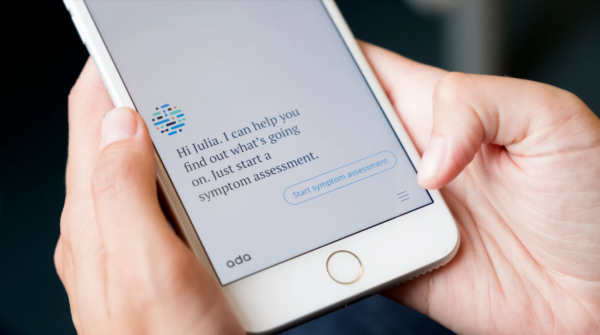
Berlin-based Ada Health announced Thursday that it has tacked on another $30 million to its fund-raising efforts, which will help the digital health company increase its presence in the U.S.
Ada Health closed its Series B round at $120 million including the $30 million extension round. International investors Farallon Capital, Red River West and Bertelsmann Investments provided the additional funds, according to the company.
This follows an initial Series B raise of $90 million last May, which was led by Bayer’s investment arm. The company also announced that Schroders Capital has become a major investor.
The funding will be used to double-down on the company’s growth in the U.S. and internationally, said Daniel Nathrath, CEO and co-founder of Ada Health, in an email provided by a spokesperson.
“The health ecosystem in the U.S. market is fragmented, and health systems, payers and providers are under significant strain,” Nathrath said.
The company has an artificial intelligence-powered health assessment and care navigation platform and an app called Ada that helps users understand their symptoms and access the type of care they need.

A Deep-dive Into Specialty Pharma
A specialty drug is a class of prescription medications used to treat complex, chronic or rare medical conditions. Although this classification was originally intended to define the treatment of rare, also termed “orphan” diseases, affecting fewer than 200,000 people in the US, more recently, specialty drugs have emerged as the cornerstone of treatment for chronic and complex diseases such as cancer, autoimmune conditions, diabetes, hepatitis C, and HIV/AIDS.
It integrates this symptom assessment and care navigation tool into solutions for healthcare providers as well.
“By connecting the health journey, and by partnering with key players on enterprise solutions, we hope to empower users to navigate the digital health ecosystem more comfortably, provide valuable insights for consumers and healthcare providers, and improve health outcomes and efficiencies,” Nathrath said.
The company has existing partnership with Sacramento, California-based health system Sutter Health and other U.S. health systems, life science organizations and insurers, he said. That’s in addition to the Ada Health’s partnerships with international players, including Bayer and Novartis.
A growing number of companies are touting convenient, on-demand access to healthcare as well as answers to medical questions. These range from telehealth firms, like Amwell, to MedWhat, which is also AI-powered and designed to answer complex medical questions and personalize the answers by tapping the user’s electronic medical record.
For its part, Ada Health touts itself as “the world’s most popular and highest-rated symptom assessment app” based on assessments and five-star reviews. But it’s up against big names that have their own symptoms checkers from WebMD to Mayo Clinic as well as niche businesses like Symptomate.
Still, investors in the company say they’re encouraged by its growth and how well Ada Health has already done domestically.
“We’re impressed with the commercial traction that Ada has achieved in the U.S., especially as they’ve done it with a minimal presence here so far,” said Antoine Boulin, founding partner at Red River West, in a statement.
Photo credit: Ada Health












